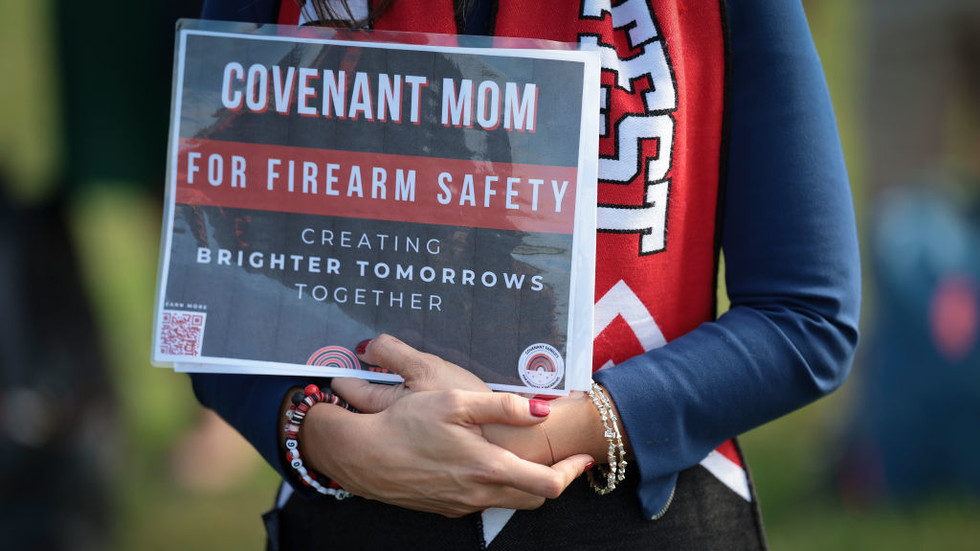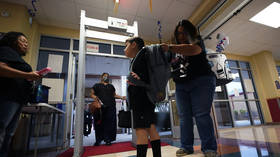
A decade ago, the country saw nearly half as many incidents in the entire year

Attendees listen to speakers during an event on the National Mall calling for action on preventing gun violence on September 13, 2023 in Washington, DC. © Win McNamee/Getty Images
The number of mass shootings in the US surpassed the 500 mark over the weekend, according to the Gun Violence Archive (GVA), which averages to almost two mass shootings a day.
On Sunday, the Denver Police Department posted an alert on X (formerly Twitter) confirming a shooting that left five people injured, which was the 500th incident of the year.
Just hours later, El Paso police reported that they were investigating an early morning shooting in East El Paso which claimed the life of a 19-year-old man and left five more injured, bringing the total number of mass shootings to 501.
According to the GVA website, a mass shooting is defined as an incident in which four or more people are shot and either injured or killed, not including the shooter.
2021 had the highest number of mass shootings in US history, with 689 reported incidents, and while the numbers fell to 647 in 2022, FBI data showed a higher number of casualties.
Recently, the National Center for Education Statistics (NCES) released its annual crime and safety report, which revealed 188 school shootings with casualties in the 2021-22 school year, more than twice the number of incidents documented a year before.

Read more
Mass shootings have been on the rise in the last decade; 273 incidents were reported in 2014.
A study published by the Annals of Internal Medicine in February indicates that gun ownership has grown in recent years, with 7.5 million US adults becoming new gun owners between January 2019 and April 2021.
The Second Amendment to the US Constitution guarantees the right to bear arms, and around a third of US adults say they personally own a gun. However, a poll conducted by Gallup in October 2022 reveals that the majority of Americans are in favor of gun control, with 57% supporting stricter gun laws.
The issue, however, remains extremely divisive. According to another Gallop study, Democrats are nearly unanimous in their support for gun control, while less than a quarter of Republicans support stricter regulations.




